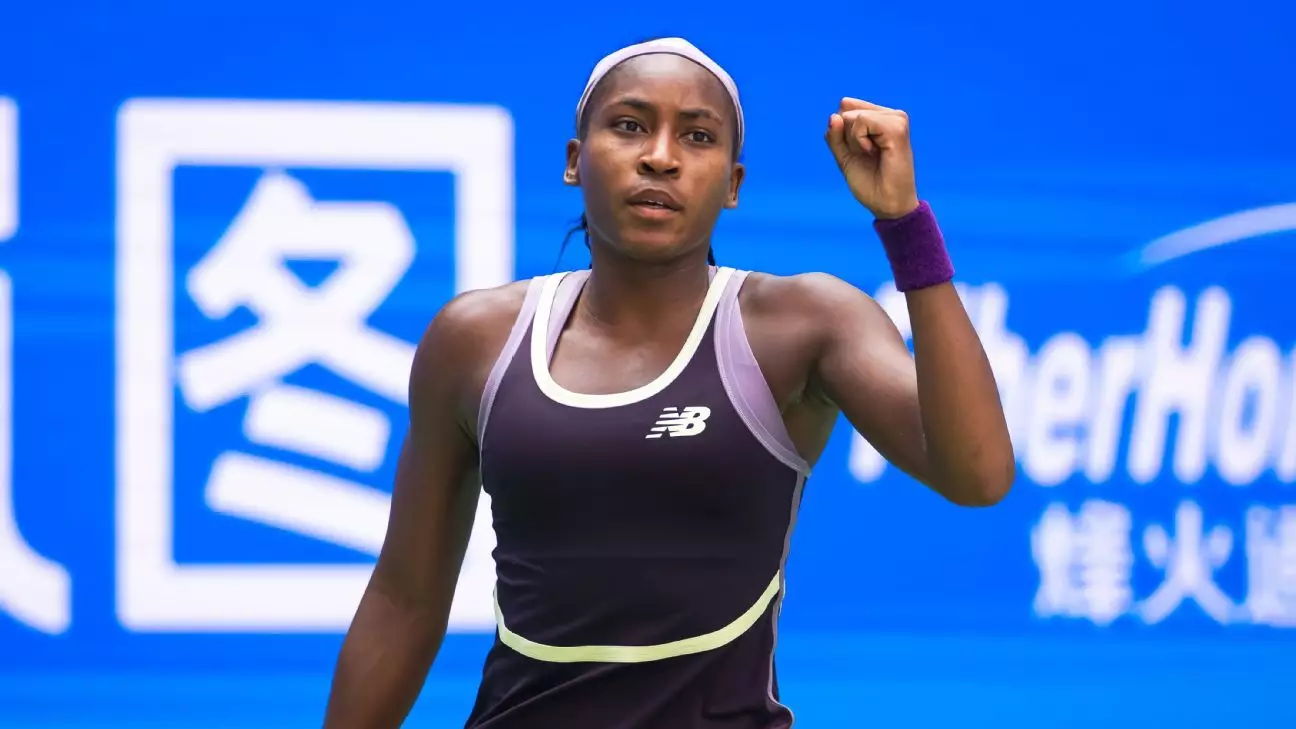The Women’s Tennis Association (WTA) Finals moving to Saudi Arabia from 2024 to 2026 marks a notable shift in the landscape of women’s sports and their role in promoting gender equality and LGBTQ rights in the Middle East. This decision has ignited a complex dialogue around the implications of hosting such a prestigious event in a country historically criticized for its human rights record. High-profile athletes like Coco Gauff are embarking on a journey that combines sports, activism, and the promise of progress, hoping to pave a path toward gradual societal change.
Gauff, the reigning champion of the US Open, embraces the notion that sporting events can act as catalysts for social transformation. She highlighted that the WTA has committed to nurturing the Future Stars program, which aims to empower Saudi women to engage in tennis and sports more broadly. The ambitious goal of having a million people playing tennis by 2030 signals a concerted effort to increase participation and visibility in sports among women in Saudi Arabia. However, this initiative raises questions about the genuine potential for reform and the effectiveness of such programs in a nation where women’s rights are still heavily restricted.
Despite Gauff’s hopeful outlook, her candid admission of reservations reflects the nuanced challenges presented by this move. The athlete acknowledged the complexity of the social situation in Saudi Arabia, where issues surrounding gender equality and LGBTQ rights are far from resolved. Strong voices within the tennis community, including legends like Chris Evert and Martina Navratilova, have expressed concerns about the decision to hold the WTA Finals in a country that has faced accusations of “sportswashing.” This term refers to the practice of using sports to improve a nation’s image while downplaying serious human rights violations.
Gauff’s recognition of the need for a structured plan underscores that sports cannot simply function in a vacuum. There is a sincere call for action beyond the confines of the tournament, hoping that more profound engagements will resonate within the socio-political landscape of the kingdom. The need for tangible outcomes, such as advocacy for women’s rights and LGBTQ acceptance, underscores the importance of fluid communication between athletes, advocates, and local stakeholders in effecting genuine change.
One of the most compelling facets of Gauff’s approach is her emphasis on dialogue with local women, including prominent figures like Princess Reema Bandar Al Saud. By engaging directly with individuals who navigate the realities of life in Saudi Arabia, Gauff and her peers can develop a more contextual understanding of the challenges and opportunities that lie ahead. This interaction illustrates a commitment not just to play a game but to break bread with local advocates of gender equality, underscoring women’s empowerment and significantly impacting the local context of sports.
Gauff’s willingness to reflect on her experiences during her upcoming stay exemplifies a level of responsibility that transcends sports. Her desire to determine if any progress is being made in regards to women’s rights during her visit illustrates an engagement with the region that is both personal and conscious. The perspective she brings as an athlete and advocate challenges her fellow players and the WTA to consider the broader implications of sports events and their potential for fostering social change.
As the WTA Finals approaches, discussions around human rights and sports continue to amplify. It raises pertinent questions about whether hosting major events can contribute to actual change or merely serve as a platform for governments to deflect attention from deeper issues. Activists and organizations advocating for gender equality and LGBTQ rights remain watchful, seeing these developments as opportunities to engage with a global audience that can exert external pressure for reform.
Ultimately, while the glamour and prestige of the WTA Finals on Saudi soil are undeniable, the most critical narrative lies in how this convergence of sport and activism will translate into real-world changes. As Gauff aims to navigate this path, she embodies the hope that sports can indeed foster dialogue and bring attention to critical issues, reminding stakeholders that equality and freedom should be inherent rights for all individuals. Whether this event can serve as more than just a high-profile tournament remains to be seen, but the initial steps toward dialogue and empowerment signal a promising start.


Leave a Reply